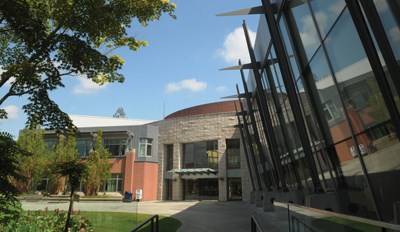The city of Coquitlam is ramping up its efforts to crack down on illegal secondary suites in homes.
Bylaw enforcement officers investigated 207 complaints in 2016 and wrote 56 tickets, including 43 for landlords with impermissible units.
Stephanie James, Coquitlam’s acting director of legal and bylaw enforcement, said the city is also targeting realtors and industry professionals who promote properties as being allowed to have secondary suites when they may not be.
“Much of the city’s enforcement is focused on preventing impermissible suites from being constructed or rented out in the first place,” James said, later adding, “The city is also encouraging the Real Estate Council to investigate and, where appropriate, take disciplinary action against realtors advertising the presence or possibility of impermissible suites.”
In Coquitlam, single-family homes are only allowed to have one suite while suites in multi-family homes, like duplexes and townhouses, are prohibited. Homeowners who are allowed to have secondary suites must have a building permit, be in compliance with zoning bylaws and have an appropriate amount of parking.
Last year, four tickets were issued to landlords that had permissible suites that were either not permitted or not in compliance with B.C. Building Codes. In those instances, renovations may be necessary before the place is habitable.
As for the 43 tickets for impermissible suites, no amount of renovations can bring those units into compliance. That means that in cases where the suites had already been rented, tenants were forced to find new accommodations, a difficult task in a region that has a 0.7% vacancy rate.
James said in cases where a tenant is displaced, landlords are required by provincial law to provide a certain amount of notice before the person must vacate.
“The inspector considers potential impacts on tenants,” she said, noting that the Residential Tenancy Act and whatever agreements worked out between a landlord and a tenant still apply when impermissible suites are fined. “Coquitlam’s enforcement efforts are designed to be consistent with those requirements while still ensuring unsafe situations are addressed in a timely way.”
In total, 38 homeowners received tickets in 2016, meaning some people had multiple infractions. Five were given to landlords who reinstated their suites after having been previously ticketed, while another four were issued to homeowners who refused to allow an inspection of their property.
The city’s bylaw division began ramping up enforcement of impermissible suites at the beginning of the year. A staff report from last fall said illegal suites can pose safety risks for occupants and invalidate a homeowner’s insurance.
COQUITLAM 2016 TICKET NUMBERS
The number of bylaw enforcement notices issued by the city of Coquitlam was up 21.2% last year from 2015.
Street and traffic bylaw infractions made up the bulk of the numbers, increasing from 15,585 tickets to 18,799, while animal care and control tickets saw a jump from 592 to 629.
“The general trend is one of more complaints and more ticketing,” said John Dumont, Coquitlam’s deputy city manager. “These trends are the function of a growing community where there is lots of activity going on.”
Animal control complaints were also high, with 1,156 calls to the city leading to 629 tickets, while 243 tickets were issued for residents with unsecured garbage, up from 13 in 2015.
According to a staff report, approximately 10% of all tickets are disputed, which is reduced to about 1% after their dispute notices are reviewed by a screening office.
The document stated that in 2016, 125 were adjudicated, of which 77% were upheld.
gmckenna@tricitynews.com



